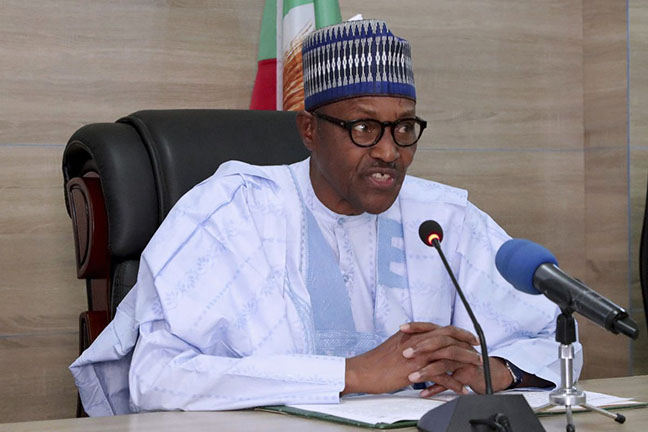Guyana’s learning curve in the oil and gas sector is unlikely to be littered exclusively with pleasing revelations all of which have to do with the positive transformational effect that the industry promises to have on the welfare of the populace and the development of the country as a whole. Even the limited knowledge to which we have had access so far points unerringly in the direction of the industry’s unpalatable dimensions, not least, those that have to do with the dangers of an environmental backlash as well as the alarmingly high levels of corruption in the sector involving, variously, high officials of government and other influential functionaries and which, all too frequently, ensue with the complicity of the international oil companies.
In recent weeks we in Guyana have been recipients of a somewhat ‘rude’ awakening arising out of the disclosure that the country’s State Assets Recovery Agency (SARA) had launched an investigation into the likelihood, or otherwise, that there might have been an element of corruption in the previous political administration’s decision made just before it demitted office in 2015 to award two oil blocks to companies that had no noteworthy entrepreneurial profile. The assertion that the awards of the oil blocks were made a matter of days before ExxonMobil had broken the news of its first oil find, have given rise to speculation that there was a dimension of irregularity to the awarding of those oil blocks.
The blocks were reportedly awarded a week before general elections to little known companies named JHI Associates of Toronto and Mid Atlantic Oil and Gas of Guyana. These had been set up around five years prior to 2015 according to SARA and had had no known high profile previous experience in the sector. The SARA Director had noted that the two companies had been “handed the blocks without any public auction, without parliamentary oversight as the house was dissolved to facilitate general elections. There were no consultations with the opposition. There was also no signing bonus.” He went on to assert that it was necessary “to find out what laws were breached…… and whether there was corruption.”
Globally, corruption is par for the course in the oil and gas industry, with mostly underdeveloped and developing oil producing countries drawing attention to themselves in this regard.
Back in June Dr. Emanuel Kachikwu, Nigeria’s former Minister of State for Petroleum disclosed in a public presentation that corruption-related eventualities that had arisen out of the allocation of oil blocks in the sector had led to the Nigerian government moving to clean the proverbial Augean stables by putting a temporary halt to the allocation of oil blocks.
Realistically, the acquisition of oil blocks require some level of official connection as well as access to not modest amounts of funding. Dr. Kachiku had also alluded to the need to reach out to well-placed joint venture partners who could bring with them the requisite verifiable technical expertise to effect oil recovery. Frankly, those sorts of opportunities are customarily given only to individuals or groups who have come into the upper echelon of society. Individuals or groups from poor communities are unlikely ever to become owners of oil blocks.
Even in instances when individuals or groups perceived to be well-off harbour the ambition of becoming owners of oil blocks, they frequently fall at the hurdle of insufficient resources to see their ambitions through. In Nigeria, there have been instances where licences for oil blocks have been revoked even before their expiration. Indeed, while oil blocks are sometimes acquired and kept as generational heirlooms many are acquired by ‘hustlers’ for speculative purposes and hastily disposed of as soon as the suitably lucrative opportunity arises. In June this year Nigeria’s petroleum regulator reportedly revoked six oil block licences on account of what was described as “legacy debts.” Nigeria, reportedly, has now become increasingly assertive about rescinding licences for oil blocks that are not being actively developed.
There is, as well the recent equally disturbing case of a controversial multi-million dollar anomaly in the award of rights to explore two offshore oil blocks to a company called PetroTim which subsequently transferred the rights to Timis Corporation, owned by a reportedly controversial businessman named Frank Timis. In the same year of the sale the American oil company Kosmos reportedly acquired 60 percent of the blocks from Timis, began exploring and found major natural gas reserves. BP reportedly joined the partnership and subsequently bought out Timis Corporation in 2017 for US$250 million! The deal, reportedly, was teeming with irregularities.
All of these, of course, are object lessons for Guyana, where it seems that just over four years into the country’s first major oil find issues of propriety in the administration of the sector are beginning to arise. The challenge (or at least one of them) that we face has to do with learning quickly so that the requisite monitoring safeguards, rooted in the creation of a rules-based oil and gas administration regime and overseen by functionaries trained in the correct enforcement of the requisite laws and procedures can serve to help protect against corruption-driven irregularities. Over and above all this, if we are not to go down the same road as other countries, we must be able to trust government, which after all, is the designation custodian and protector of national resources.





